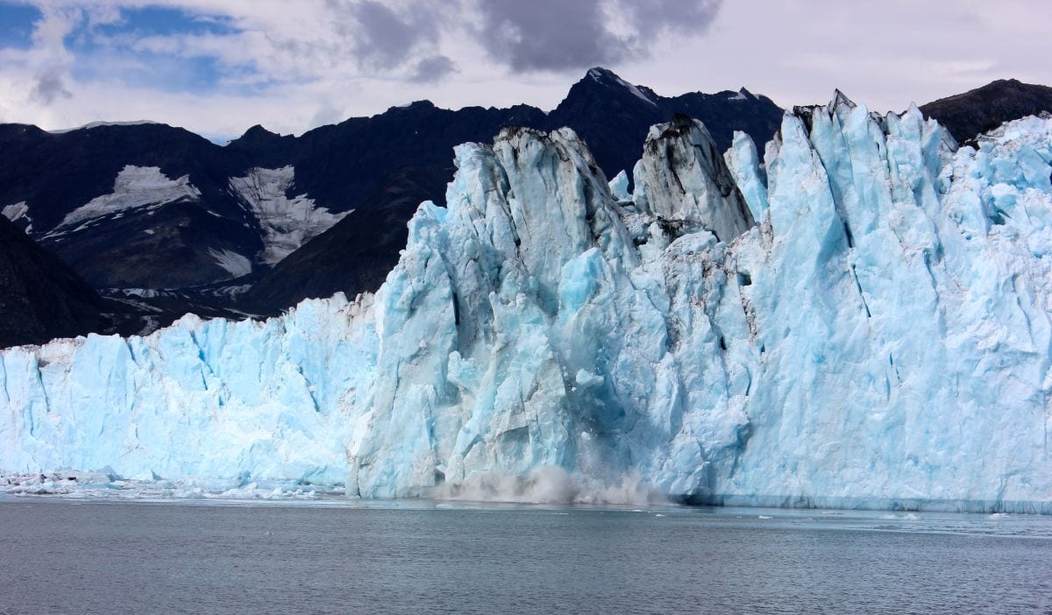The following is not an example of academic hijinks, but a serious academic attempt to feminize glaciers.
I bet you didn’t know that glaciers were sexist. Well, maybe they’re not. But they definitely lack the feminist touch as it relates to “epistemological questions about the production of glaciological knowledge.” Or…whatever.
Yes, it’s gender theory meets climate change in a clash of two of the titanic irrelevancies of the age. And the results are as banal as you would expect them to be. The paper was vomited forth by a group of University of Oregon historians — obviously the perfect candidates to write a paper on climate change. And they spared no liberal shibboleth in the making of this mish mash of hash.
The recently published, utterly incomprehensible paper was co-authored by a team of historians at the University of Oregon, and funded via a grant from the National Science Foundation. I hope American taxpayers feel like they got their money’s worth. From the abstract:
Glaciers are key icons of climate change and global environmental change. However, the relationships among gender, science, and glaciers – particularly related to epistemological questions about the production of glaciological knowledge – remain understudied. This paper thus proposes a feminist glaciology framework with four key components: 1) knowledge producers; (2) gendered science and knowledge; (3) systems of scientific domination; and (4) alternative representations of glaciers. Merging feminist postcolonial science studies and feminist political ecology, the feminist glaciology framework generates robust analysis of gender, power, and epistemologies in dynamic social-ecological systems, thereby leading to more just and equitable science and human-ice interactions.
You are probably wondering whether I am trolling you. You might be checking the date to make sure this isn’t an April Fool’s joke. Surely a satirist who set out to write a deliberate parody of left-wing papers using the jargon of the earnest social justice warrior could not have done a better job than a paper on “just and equitable human-ice interactions.”
But the paper is real—very real. The University of Oregon, in fact, put out a glowing press release touting its existence.
“Just and equitable human-ice interactions”? I would like to see them write a paper on “human-rock interactions.” After all, if Dr. Doolittle could talk to the animals, these University of Oregon moonbats should be able to interact with all sorts of inanimate things.
“What I’m trying to do in my research is provide more of a human story about how shrinking glaciers, warming temperatures, changing precipitation, how that plays out for different people,” said lead author Mark Carey, an associate dean of Oregon’s history department, in a interview accompanying the press release.
I’m sure Carey is well-intentioned, but if his goal was to put a human face on climate change, he failed. The paper is simply impossible to read with a straight face. It employs liberal buzzwords—colonialism, marginalization, masculinist discourses, etc.—with such frequency that the entire thing comes off like a joke. Just try to follow along with this paragraph:
Feminist and postcolonial theories enrich and complement each other by showing how gender and colonialism are co-constituted, as well as how both women and indigenous peoples have been marginalized historically (Schnabel, 2014). Feminist glaciology builds from feminist postcolonial science studies, analyzing not only gender dynamics and situated knowledges, but also alternative knowledges and folk glaciologies that are generally marginalized through colonialism, imperialism, inequality, unequal power relations, patriarchy, and the domination of Western science (Harding, 2009).
Note that the paper “builds on” something they call ” feminist postcolonial science studies.” This is interesting because by balkanizing science, they are aping the Nazis, who introduced “German physics,” “German chemistry,” and “German engineering” to the science curricula of universities. The Nazis were ostensibly trying to rid German science of Jewish influence. The radical feminists at U of Oregon want to rid their science of what they see as “patriarchal” and “racist” influences.
Of course, it doesn’t get much more unscientific than that, but servicing the cause of feminism sometimes requires sacrificing reality on the altar of political correctness.
Real science asks if a theory is true or false. Feminist science asks if a theory is sufficiently anti-male and anti-colonialist. Which do you suppose yields more useful information?










Join the conversation as a VIP Member